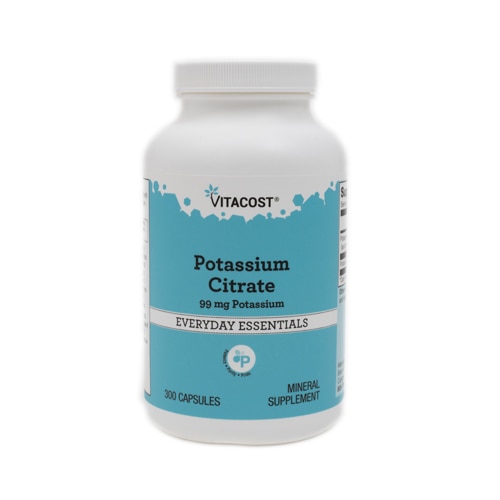An often misunderstood and undervalued mineral, potassium is necessary for life. It's the body’s most abundant electrolyte—the word for minerals that carry an electrical charge. Electrolytes play a role in the water balance in the body, as well as the body’s acidity/alkalinity, muscle function and heart rhythm. We lose electrolytes with perspiration, which is why we must consume replacement fluids to prevent serious problems.
Why do we need potassium?
Potassium is used for many essential bodily functions, including strong and regular heart contractions, proper kidney function, fluid balance and healthy muscle development. It plays an important role in nerve signaling and increases metabolism to optimally use proteins, fats and carbohydrates for energy. Potassium is also important for bone health, and dietary potassium is closely linked to bone mineral density.
Though this mineral impacts several areas of health, one of the most far-reaching is its influence on healthy blood pressure, which in turn affects cardiovascular health.
The problem with potassium
Potassium can only do its job properly when it’s in optimal balance with the yin to its yang: sodium. Historically, these two minerals were balanced in the diet, as potassium is plentiful in many fruits and vegetables.
The ideal ratio, reflected in diets that don’t rely on processed foods, is one part sodium for every seven parts potassium.
However, with the introduction of sodium preservatives and easy access to salt, plus the subsequent dietary decline in fresh fruits and vegetables, this natural balance has shifted drastically. By 1995, sodium intake was triple that of potassium according to a study in the American Journal of Physiology.
Proper balance is essential because sodium tells the body to hold on to water, and potassium says to let it go. Without adequate potassium, the body retains water, causing increased blood pressure and a whole host of health problems.
Are you getting enough?
In a 2001 study in the Archives of Internal Medicine, researchers reported that American men consume barely 75 percent of the recommended daily intake of 4,700 mg of potassium, and women get only 50 percent.
Adding to this, many prescription and over the counter drugs deplete potassium—including decongestants, certain antibiotics, many asthma medications and diuretics.
Best sources of potassium
Fruits and vegetables, beans, lentils, nuts, meats and yogurt are all potassium foods that can be easily incorporated into your diet. According to the National Institutes of Health, good sources of potassium include:
Fruits: Oranges, citrus fruit, bananas, prunes, cantaloupe, kiwi and dried apricots (dried apricots are a better source than fresh apricots)
Vegetables: broccoli, tomatoes, sweet potatoes, potatoes (especially skins), peas, lima beans and winter squash
Protein: red meat, chicken, fish (salmon, cod, flounder, sardines), nuts, soy products and veggie burgers
Dairy: milk and yogurt
What to consider when taking supplements
Unfortunately, there are obstacles to providing adequate potassium in dietary supplements. Because potassium is intensely alkaline, it can irritate the lining of the stomach if a tablet or capsule lies in one area and doesn’t dissolve properly.
Therefore, the limit that dietary supplements can legally provide is generally less than 100 mg per dose (nowhere near the recommended daily allowance). However, it is available in higher doses in liquids or drink mixes.
Note that there are a few rare conditions (for example, kidney failure) and certain prescription drugs with which potassium intake must be closely monitored.
If you have any questions, talk to your healthcare provider to make sure increasing potassium is right for you.




